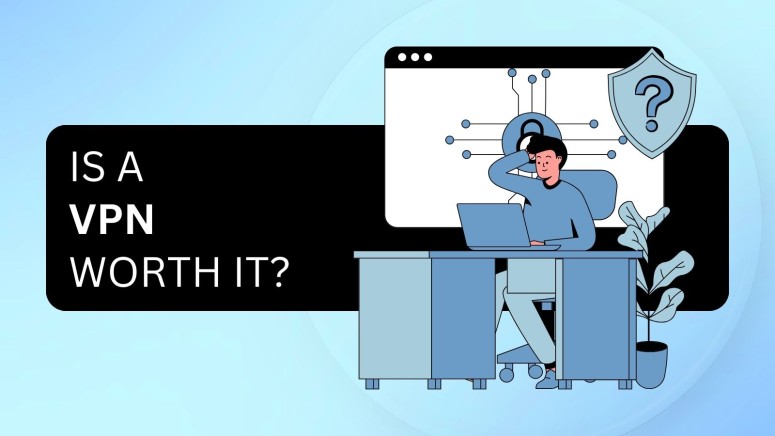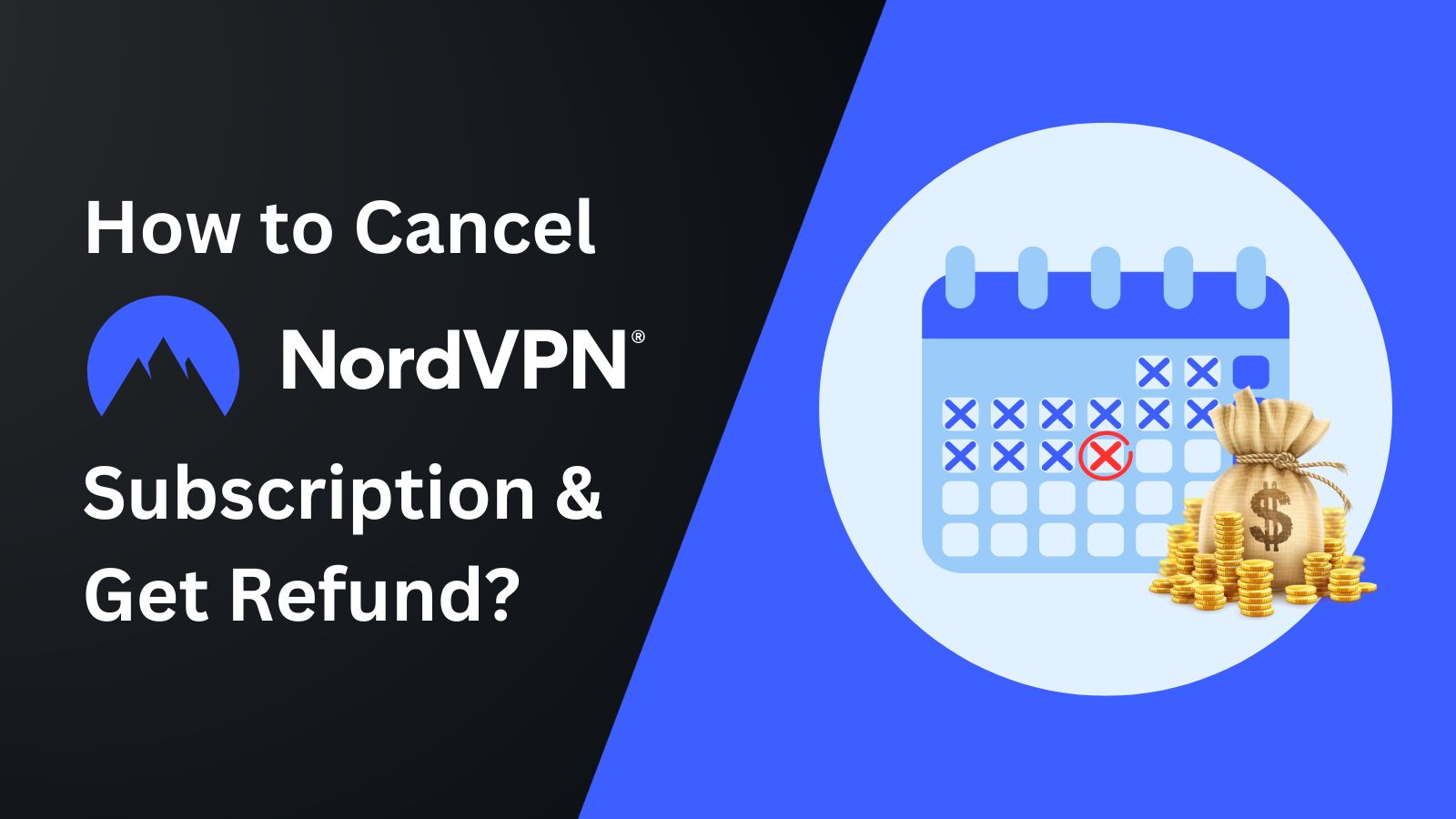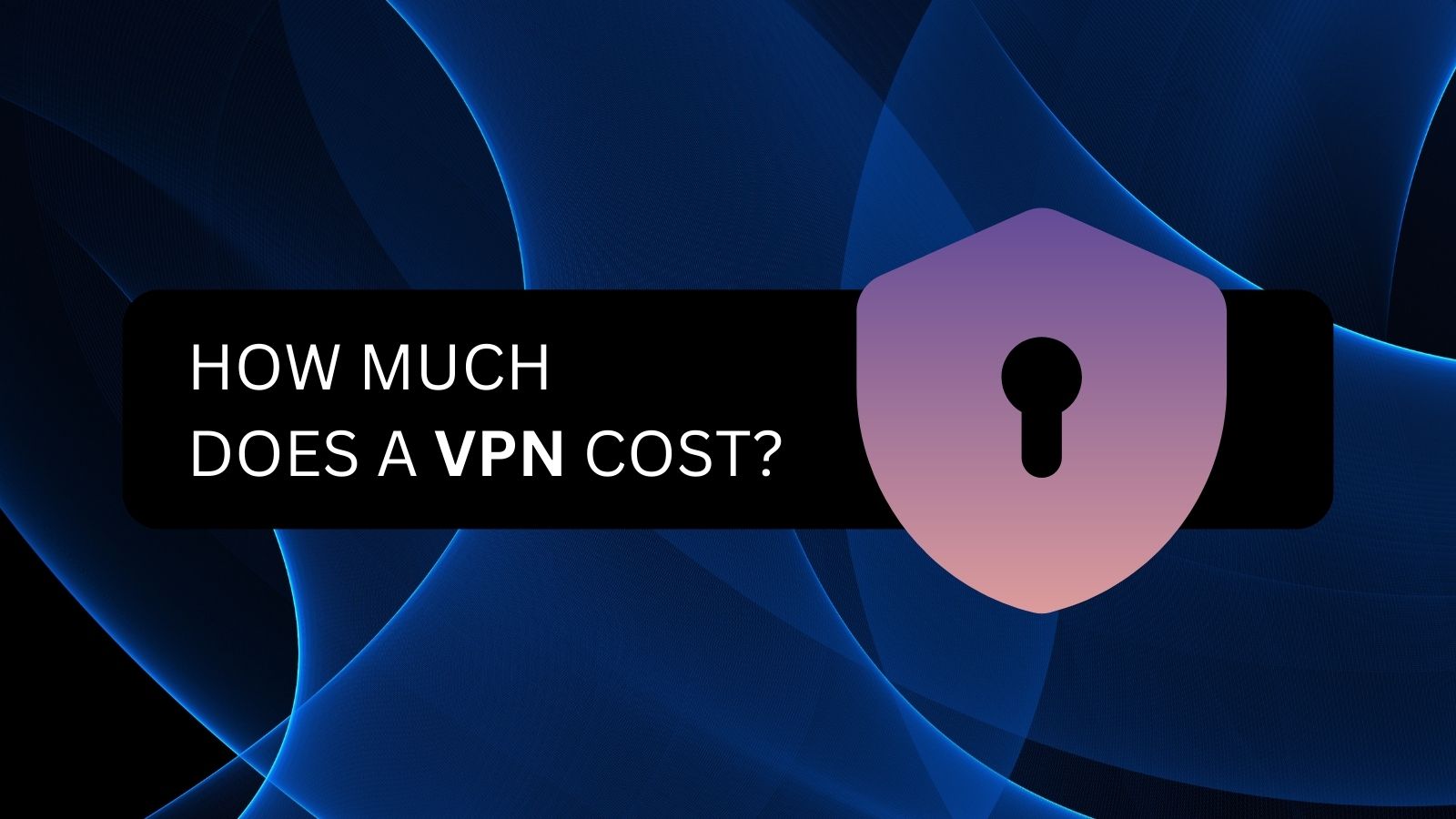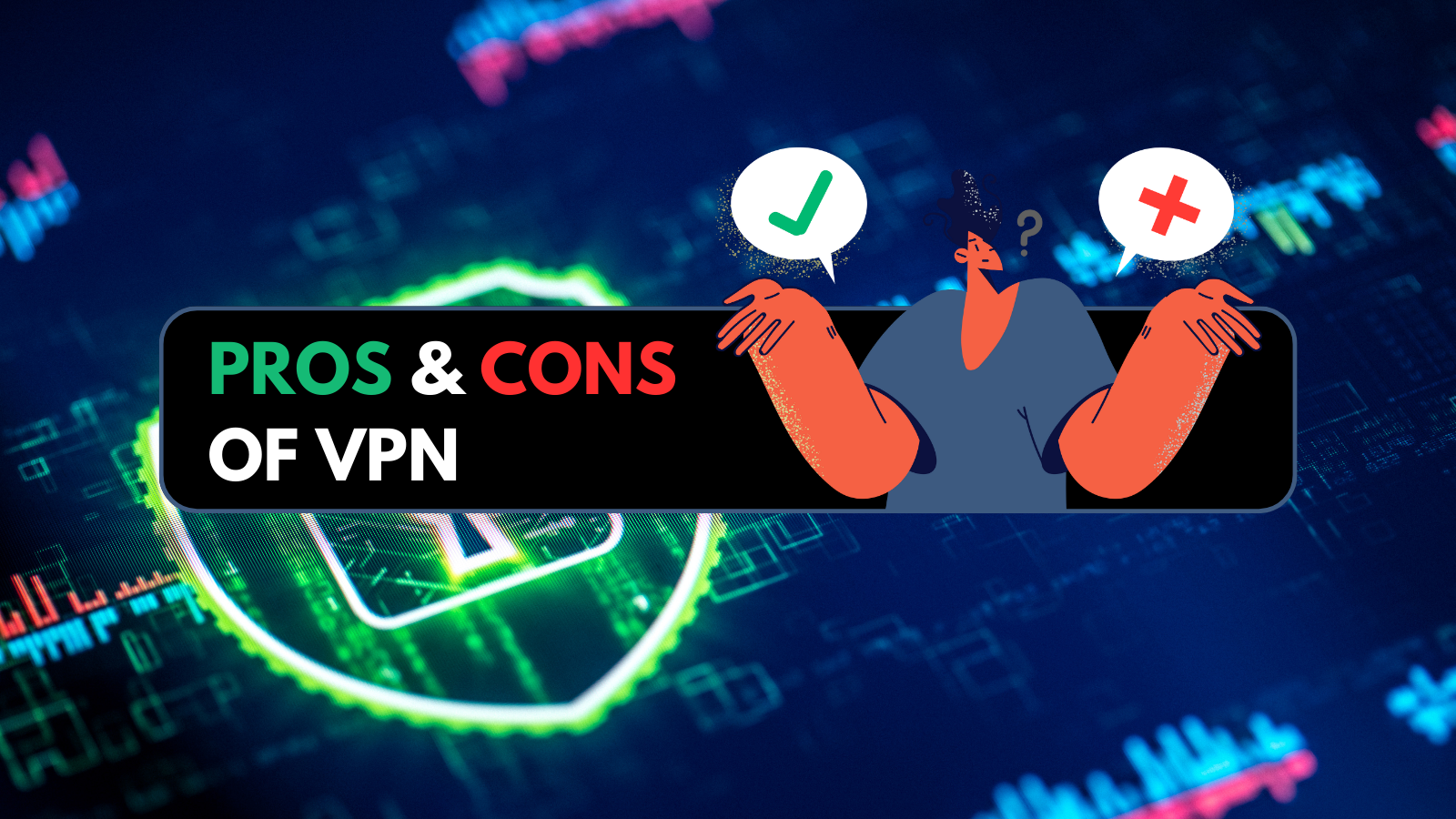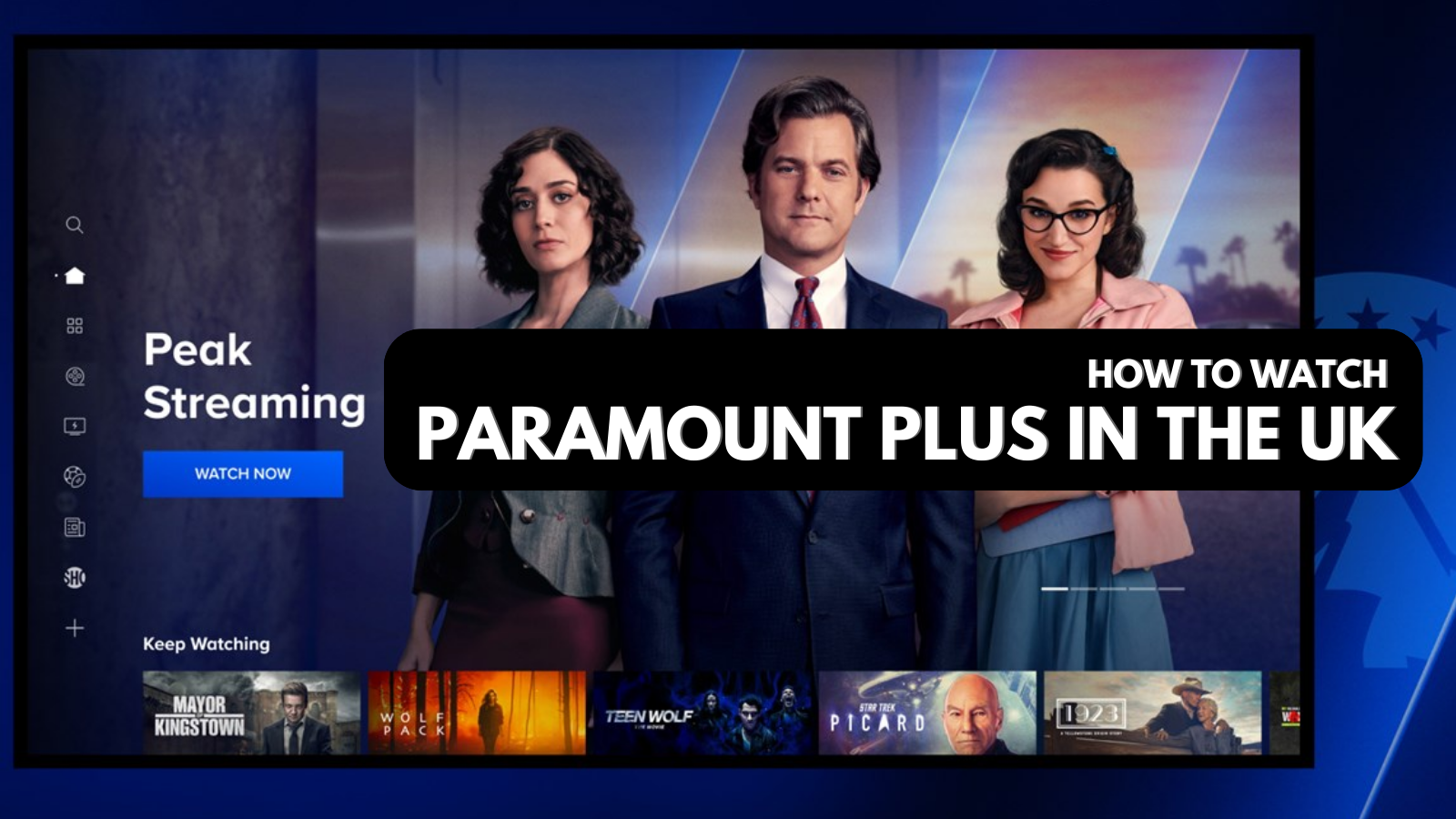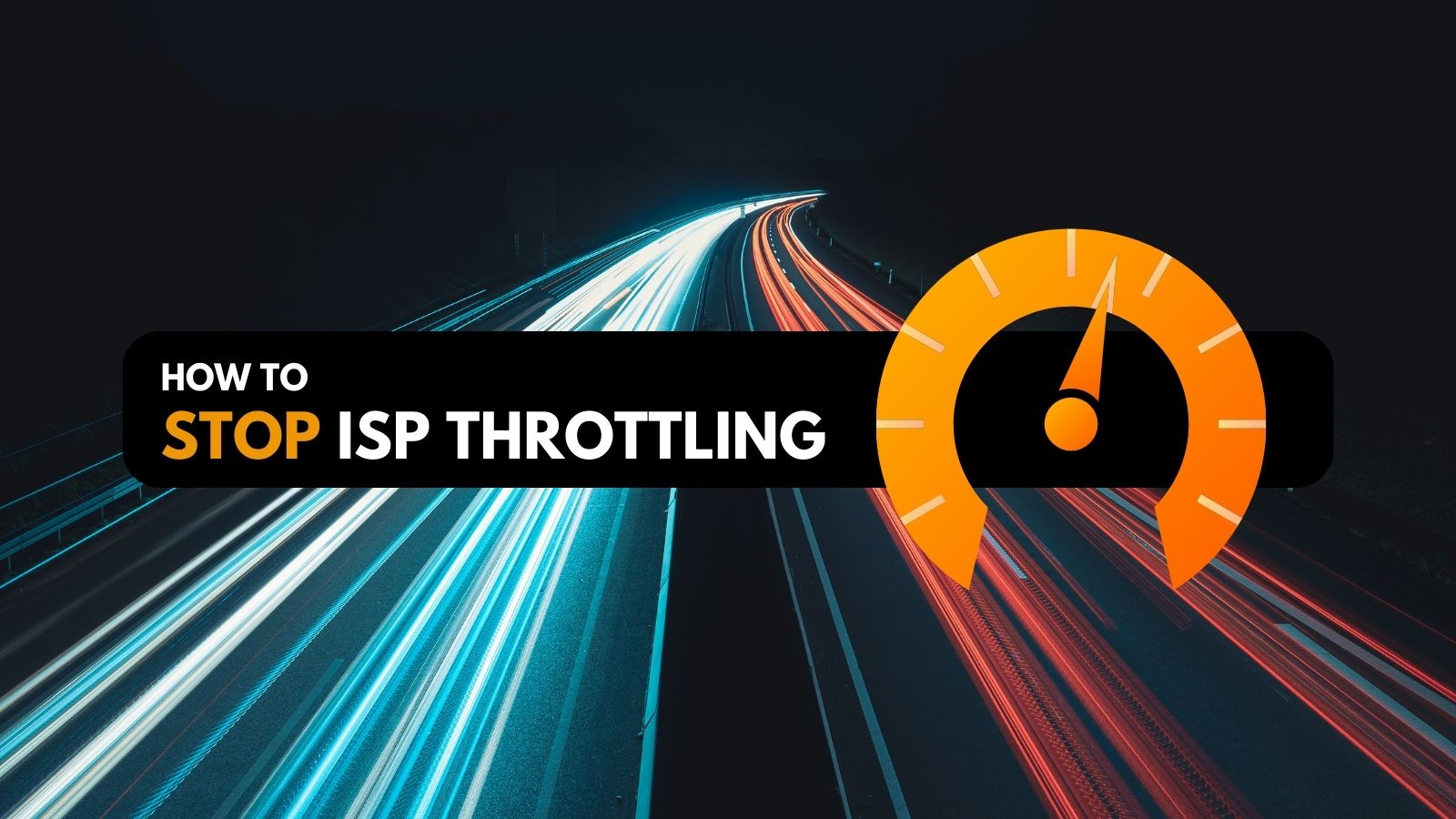
When you purchase through links on our site, we may earn an affiliate commission. Here’s how it works.
Is a VPN Worth It in 2025?
The Web is full of misinformation about VPNs. For instance, VPNs are only used for hideous activities. Or, if VPNs are banned in your country, your government may want you to believe that such tools are useless. On the other hand, some websites portray VPNs as magic software that can unblock everything on the Web. While claims can be far-fetched, VPNs are still very useful in daily browsing.
In this article, we will help you decide whether it is worth buying a VPN in 2025 and discuss the various reasons for getting a VPN. You’ll also learn about when a VPN is not worth it and what to look for in a VPN.
Key Takeaways: Are VPNs Worth It?
VPNs are absolutely worth considering for most users. They protect your privacy, keep your data safe, especially on public Wi-Fi, and let you access content from around the world. Whether you’re traveling, gaming, working remotely, or simply want more control over your online privacy, a VPN can offer significant benefits. Here’s a quick look at what they help with:
Benefits of Using a VPN in 2025
VPNs play a key role in keeping you safe and private online. They protect your data while browsing or torrenting, let you access restricted websites and content, hide your online activity, and help bypass bandwidth throttling.
In this section, we’ll break down all the main reasons why using a VPN can improve your everyday Internet experience and why it is absolutely worth getting a VPN.
1. Protect Your Data on Public Wi-Fi
Despite being convenient, public Wi-Fi networks are notorious for their lack of security. So, hackers exploit these networks to intercept sensitive data from unsuspecting users. One of the most notable benefits of a VPN is that it protects your data on public Wi-Fi. And if you are wondering, such networks are found in public places like cafes, airports, and hotels.
A VPN protects you by encrypting your Internet connection and turning your personal information into unreadable code. This means that even if someone intercepts your data, they would not be able to decipher it.
Such a high level of security is particularly crucial if you are working with sensitive information online, such as banking or credit card details. Overall, it is worth paying for a reliable VPN if you frequently use public Wi-Fi networks.
2. Access Restricted Content
Various Web services like Omegle, WhatsApp, and Telegram are banned in countries like the UAE and Iran. Similarly, many streaming services like Hulu and Disney+ are geo-restricted due to limited content distribution rights. This can be frustrating, especially when you travel to a different country or if you live in a region with strict censorship.
A VPN allows you to bypass these geographical restrictions. It lets you unblock almost all blocked websites. When you connect to a VPN, you can choose a server in a different country, which temporarily changes your IP address. This makes it appear as if you're accessing the Internet from that location.
This capability is particularly beneficial for accessing geo-blocked streaming services. Still, remember that a good VPN for streaming should also have lightning-fast servers because streaming requires high bandwidth.
3. Hide Your Browsing Activity
Your online privacy is constantly at risk from ISPs, advertisers, and other entities tracking your browsing activity. In this regard, a VPN is necessary because it hides your online activity and plays a crucial role in safeguarding your privacy.
By creating a secure tunnel for your internet traffic, a VPN hides your IP address and ensures that your browsing activity is invisible to these prying eyes. This encryption not only prevents ISPs from monitoring and selling your browsing data but also keeps advertisers and other third parties in the dark about your online habits.
If you are wondering what a VPN hides, it conceals your IP address, browsing activity, and location. However, a VPN will not hide any information that you give away voluntarily, such as on social media websites or Internet forums.
4. Bypass Bandwidth Throttling
Bandwidth throttling is when ISPs provide you with slower Internet speeds during certain activities like streaming or gaming. The main reason why ISPs throttle your bandwidth is to regulate network traffic and minimize congestion. This can be particularly annoying and disrupt your experience.
A VPN can help you bypass such interruptions. It does this by encrypting your traffic, due to which your ISP cannot see your online activities. This means that they cannot selectively slow down your Internet speed based on what you're doing online.
5. Bypass Government Censorship
In some countries, governments restrict or block access to certain websites, apps, or services. These restrictions can limit your ability to access news, social media, or communication tools.
VPNs allow users to bypass such censorship by routing traffic through encrypted tunnels to servers located in countries with open internet policies. This makes it look like you’re accessing the internet from a different location.
This capability is especially crucial for journalists, activists, and citizens in restrictive regions who rely on open communication and information access. A VPN is often a lifeline to uncensored information.
6. Save Money
Using a VPN can surprisingly lead to significant savings, especially for those who frequently shop online or subscribe to various services. The secret lies in the fact that many websites display different prices based on the user's geographical location.
By changing your virtual location through a VPN, you can explore prices in different regions for the same product or service. Using a VPN actually helps you bypass price discrimination and lets you score the best deals. This alone makes it worth having a VPN, as you will be able to book hotels, tickets, and a lot more at a lower price.
7. Better Gaming Experience
Online gaming often suffers from issues like high latency and the risk of DDoS attacks from Internet trolls, which can disrupt your gameplay. By masking your IP address, a VPN makes it harder for attackers to target your connection.
For gamers, a VPN is not just a tool for privacy; it's a means to enhance the gaming experience. It can help reduce ping and latency by connecting you to servers closer to the gaming servers, potentially providing a smoother and faster gaming experience. So, it is worth buying a VPN if you frequently enjoy gaming.
Generally, the best VPN for gaming should offer gaming-optimized servers, high speeds, and a wide-server network so that you have more location options to choose from.
8. Safe Torrenting
By using a VPN, your torrenting activity is encrypted and anonymized, protecting you from potential legal issues and cyber threats. It prevents other users in the torrent network from seeing your real location.
At the same time, it also encrypts your data packets to prevent others from snooping on them. This anonymity is crucial for safe torrenting, as it shields you from being directly targeted. For this reason, a VPN for torrenting should have strong encryption like 256-bit AES along with secure protocols, preferably OpenVPN.
9. Secure Remote Work and Data
In an increasingly remote work environment, accessing sensitive company data over insecure connections poses a serious risk. VPNs provide a safe and encrypted way for employees to access internal systems.
VPNs are often used in corporate settings to create secure connections between remote workers and company servers. This helps prevent data leaks and ensures that confidential files are protected from external threats.
Whether you're working from home, a café, or halfway across the world, these best remote work VPNs will ensure that your work communications and file transfers remain secure.
10. Stay Safe and Connected While Traveling
When traveling, you’re often forced to rely on unfamiliar and potentially insecure Wi-Fi networks in airports, hotels or public transport hubs. These networks are hotspots for cyberattacks, making your personal data highly vulnerable. Additionally, if you are traveling to a country with strict VPN bans or surveillance laws, then you may not be able to use the internet as safely.
However, you can easily protect yourself by using one of the best VPNs for traveling. A VPN will safeguard your data while you’re on the move by encrypting your connection and ensuring your personal information, such as login credentials, credit card details, and emails, remains secure. This is especially critical if you're accessing sensitive accounts or making online purchases during your trip.
Additionally, a VPN helps you access content from your home country, such as news websites, banking services, or streaming platforms, even when you're abroad. This keeps you both connected and protected, no matter where your journey takes you.
Drawbacks and Limitations
While VPNs offer great benefits, they’re not perfect for every situation. They won’t magically speed up your internet, and they can’t provide complete privacy if you’re still sharing your data or clicking on unsafe links. Let’s explore the common limitations of VPNs and when they might not be the best solution.
1. For Total Online Privacy and Security
VPNs enhance online privacy and security but cannot guarantee absolute anonymity. They effectively mask your IP address and encrypt your Internet traffic, making it difficult for third parties to track your online activities.
However, note that VPNs do not block in-browser tracking methods like cookies and fingerprinting. On top of that, if you're logged into social media accounts tied to your real identity, the effectiveness of VPNs in protecting your privacy diminishes significantly.
2. To Speed Up Your Internet Connection
Contrary to some misconceptions, VPNs do not inherently speed up your Internet connection. However, they can prevent ISPs from throttling your connection based on your browsing activity, which can increase your speed.
Overall, if you're experiencing ISP throttling, you can stop ISP throttling with a VPN. But if no throttling is occurring, a VPN will likely slow down your connection due to the encryption process and the additional data routing.
3. Preventing Malware and Phishing Attacks
While VPNs offer a layer of security by encrypting your internet connection, they do not generally provide protection from malware and phishing attacks. VPNs can help hide your IP address and secure your data from hackers on public networks, but they do not replace the need for dedicated antivirus or anti-malware software.
These specialized programs are designed to detect and remove malicious software and protect against phishing attempts, something a VPN alone cannot do. Therefore, for complete protection, it's advisable to use robust antivirus tools along with a VPN.
4. Your VPN is Leaking Personal Data
A VPN that leaks your personal data defeats the purpose of using one for privacy and security. VPN leaks can expose your IP address, browsing history, and even personal information. To ensure your VPN is effectively protecting you, regularly test for IP, DNS, and WebRTC leaks.
There are various online tools available for these tests. If your VPN is leaking data, it's not providing the security you need, and it may be time to consider a different provider. Overall, a reliable VPN should safeguard your data consistently without any leaks.
Who Really Needs a VPN?
A VPN isn't essential for everyone, but for certain groups of people, it can be a game-changer in terms of privacy, access, and security. Here’s who benefits the most:
- Frequent Travelers – Safely access home services and sensitive data from unsecured hotel or airport Wi-Fi networks.
- Remote Workers – Protect company data and securely connect to corporate systems while working outside the office.
- Streaming Enthusiasts – Unlock global content libraries and bypass geo-restrictions on platforms like Netflix, Hulu, and BBC iPlayer.
- Journalists and Activists – Shield communications from surveillance, especially in politically sensitive regions.
- Privacy Advocates – Mask online identity and prevent tracking from advertisers, ISPs, and data brokers.
- People in Countries with Internet Censorship – Access blocked websites and services freely by bypassing government firewalls.
Alternatives to Using a VPN
While alternatives like DNS over HTTPS, TOR, encrypted messaging apps, and Smart DNS serve specific purposes, VPNs offer a more comprehensive solution.
- Compared to DNS over HTTPS, which only encrypts DNS queries, VPNs encrypt your entire internet traffic, making it much harder for ISPs, hackers, or governments to monitor or track you.
- Unlike the TOR browser, which offers strong anonymity but at the cost of painfully slow speeds, VPNs provide a balance between privacy and performance, making them suitable for everyday tasks like streaming and downloading.
- Encrypted messaging apps are excellent for private communication, but they don’t protect your web browsing, online shopping, or data on public Wi-Fi the way VPNs do.
- Lastly, while Smart DNS is great for bypassing geo-blocks on streaming platforms, it offers no security or encryption at all, leaving your identity and activity exposed.
In short, a VPN is the only all-in-one solution that provides privacy, security, and freedom online, making it the most versatile and reliable tool among all alternatives.
- Learn more: TOR vs. VPN – Which One Should You Use?
Why Should You Choose a Paid VPN Over Free VPN?
Now that we have established that using a VPN is absolutely important, let's take another step and talk about why paid VPNs are far better than free VPNs. To help you understand quickly, we have prepared a table. Let's have a quick glance:
From the above comparison table, one thing is clear, free VPNs are not safe. They lack robust security features, leaving users vulnerable to data breaches and cyber threats.
Hence, if we compare a free VPN vs. paid VPN, a paid VPN will definitely be the winner because free VPNs have very slow speeds, no capability of unblocking global content, and unreliable connections. Such limitations can significantly hinder your online experience, especially when streaming or gaming. This makes it absolutely worth it to buy a capable VPN. However, before making a decision, we recommend you to check these free trial VPNs. They will you better clarity and help you make a firm decision.
Final Thoughts
So, is a VPN necessary for Internet activities? Technically, no. But is a VPN worth it? Yes, especially if you’re on public Wi-Fi because those connections aren’t usually secure. Even on a private home connection, it is worth getting a VPN as it secures your data, lets you access global content, keeps you safe from surveillance, enhances your privacy, and a lot more.
We have thoroughly tested a wide range of VPNs, and after comparing their features, we recommend NordVPN because it checks all the right boxes. It has advanced security features like double-hop and split-tunneling, along with unbreakable encryption and high-speed servers.
If you’d like to dive deeper, here are some helpful guides:
- Best VPNs Right Now – Our top-rated VPN services for speed, privacy, and value.
- How Safe Is a VPN? – Learn what VPNs can and can’t protect you from.
- What Does a VPN Hide? – See what information VPNs keep private.
- Pros and Cons of Using a VPN – Understand the upsides and limitations of VPNs.
- How Much Does a VPN Cost? – Compare pricing across popular VPN services.
- How to Set Up a VPN – Step-by-step instructions for beginners.
- How to Check If My VPN Is Working – Make sure your VPN is active and protecting you.
We hope that this article helped you determine whether a VPN is worth it for you. If you have any comments or experiences to share, feel free to write them below.


